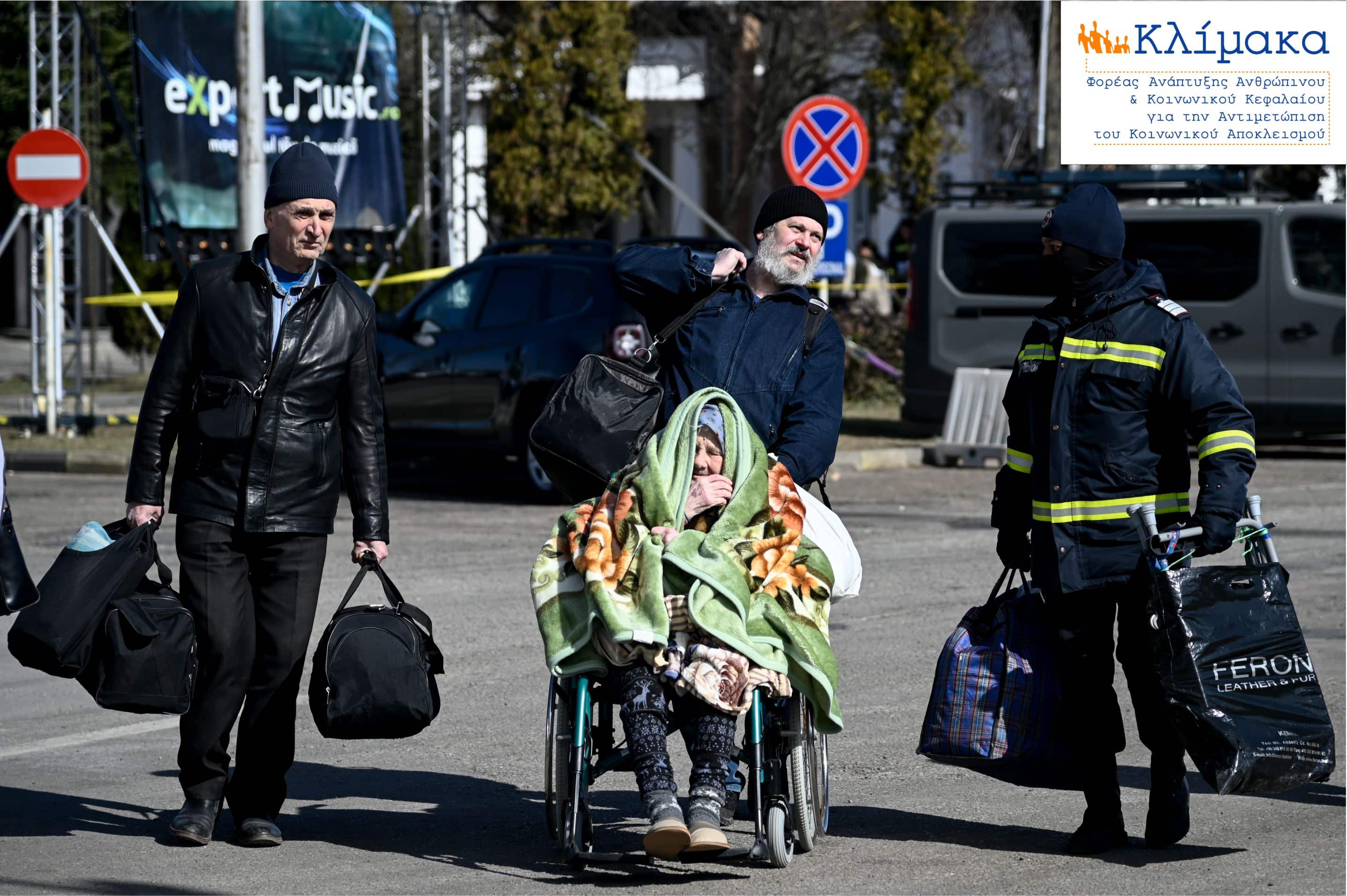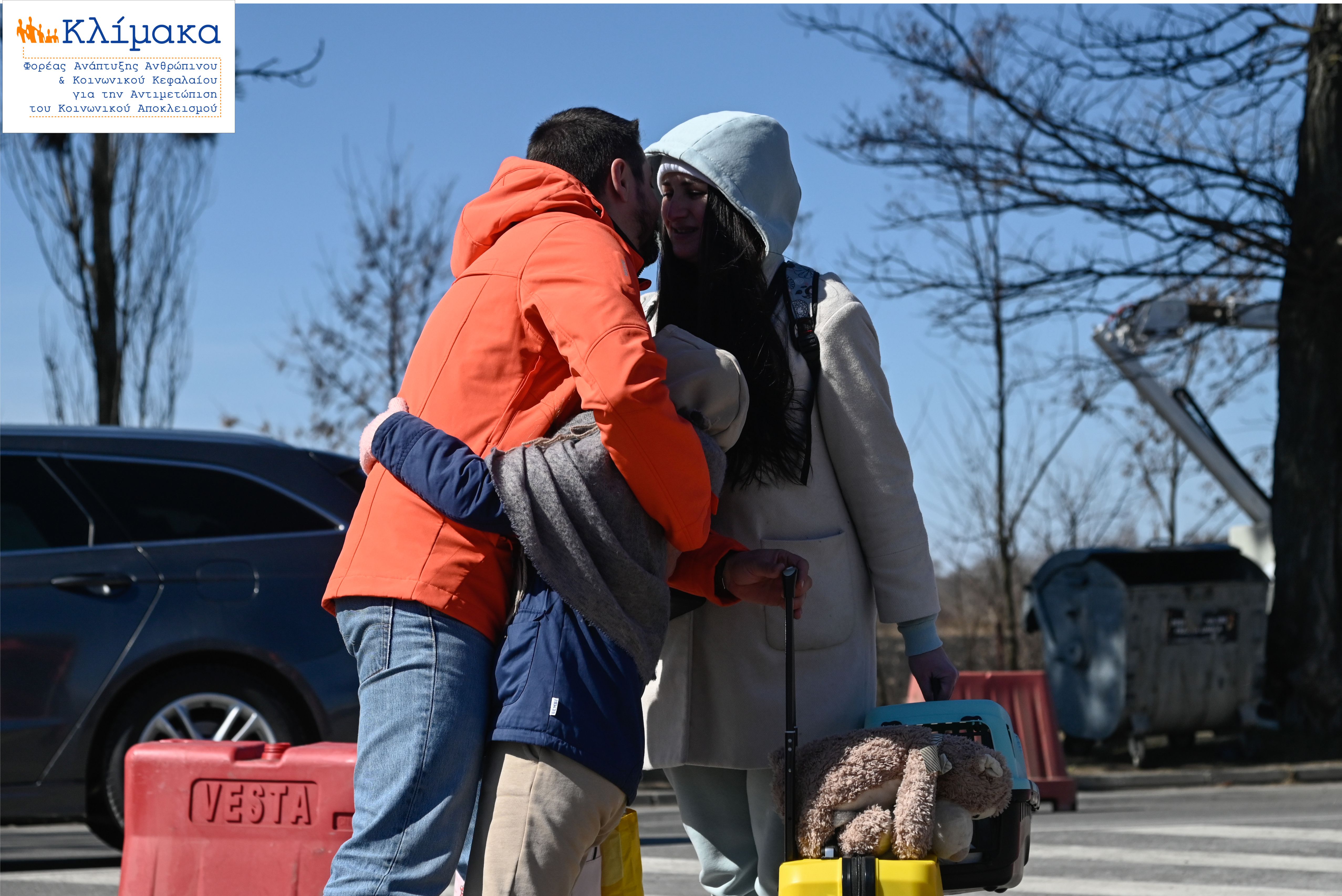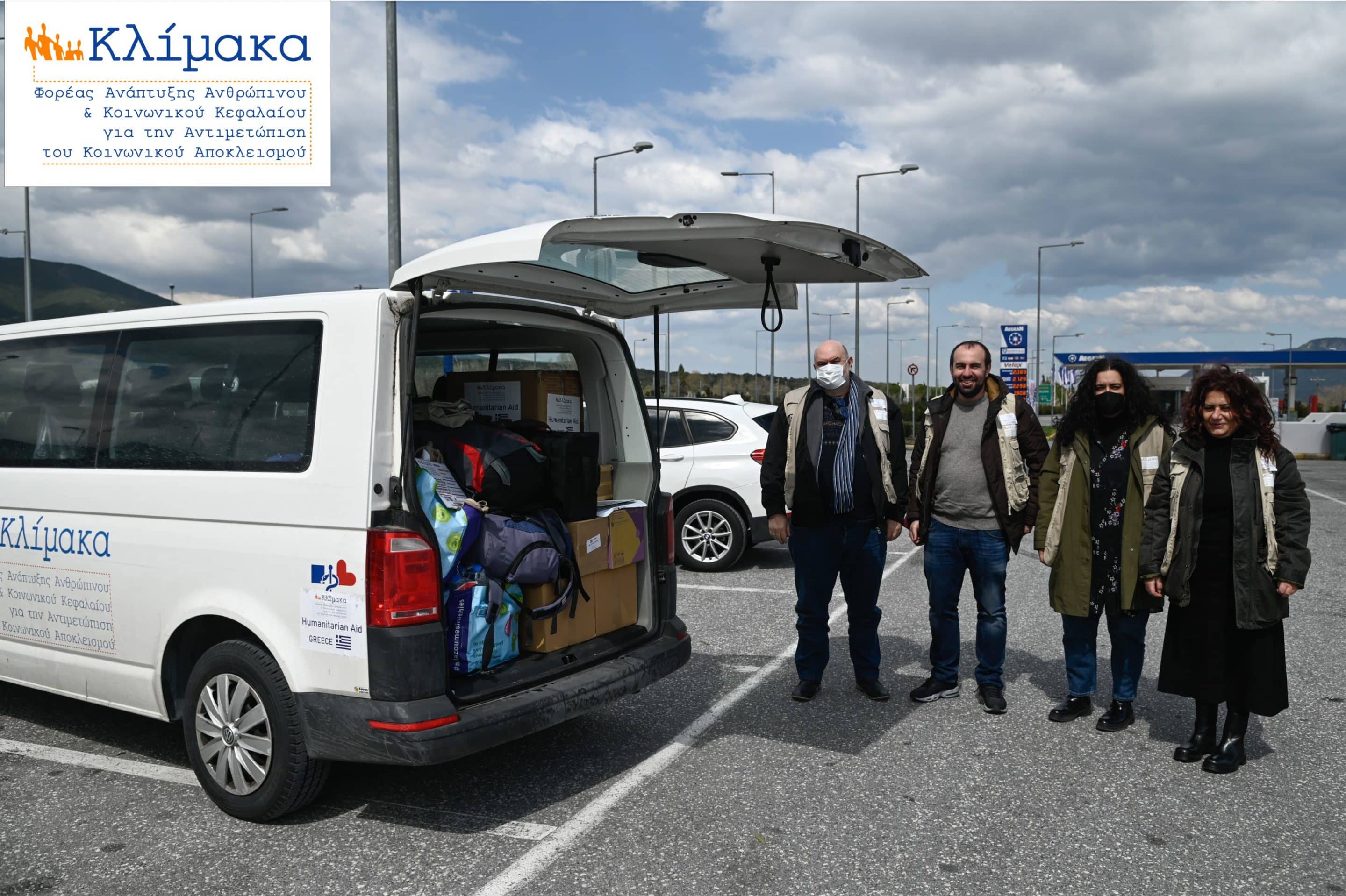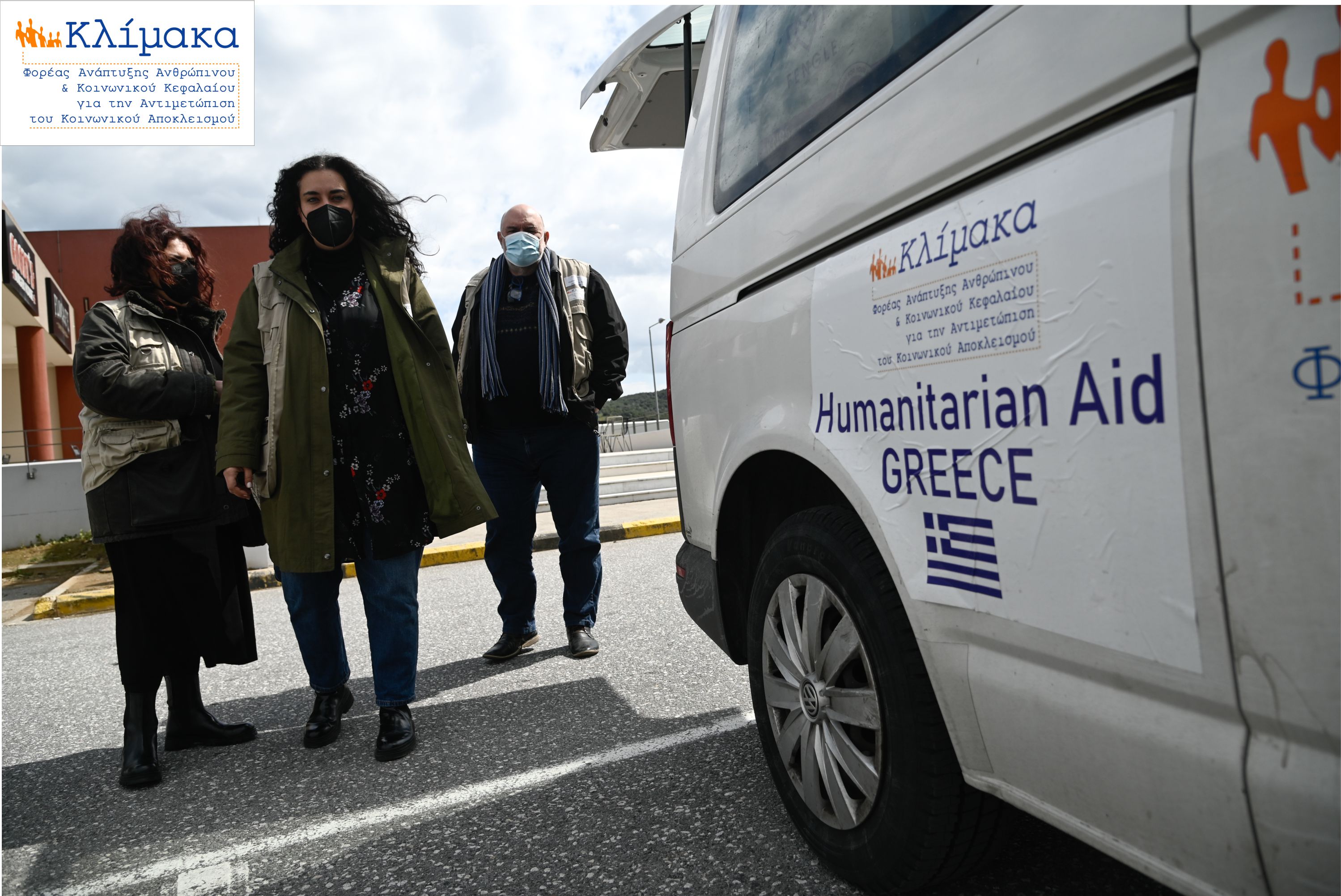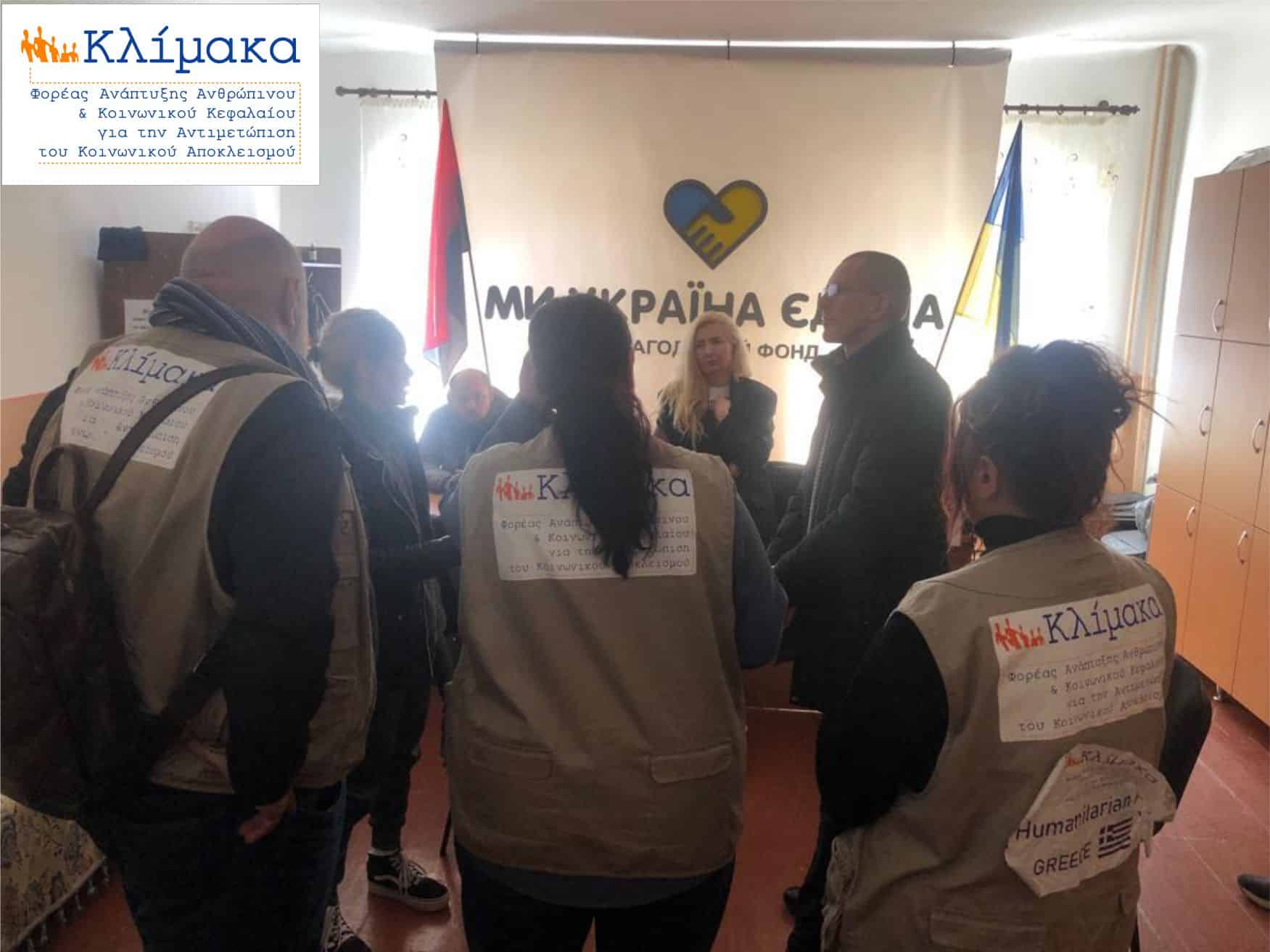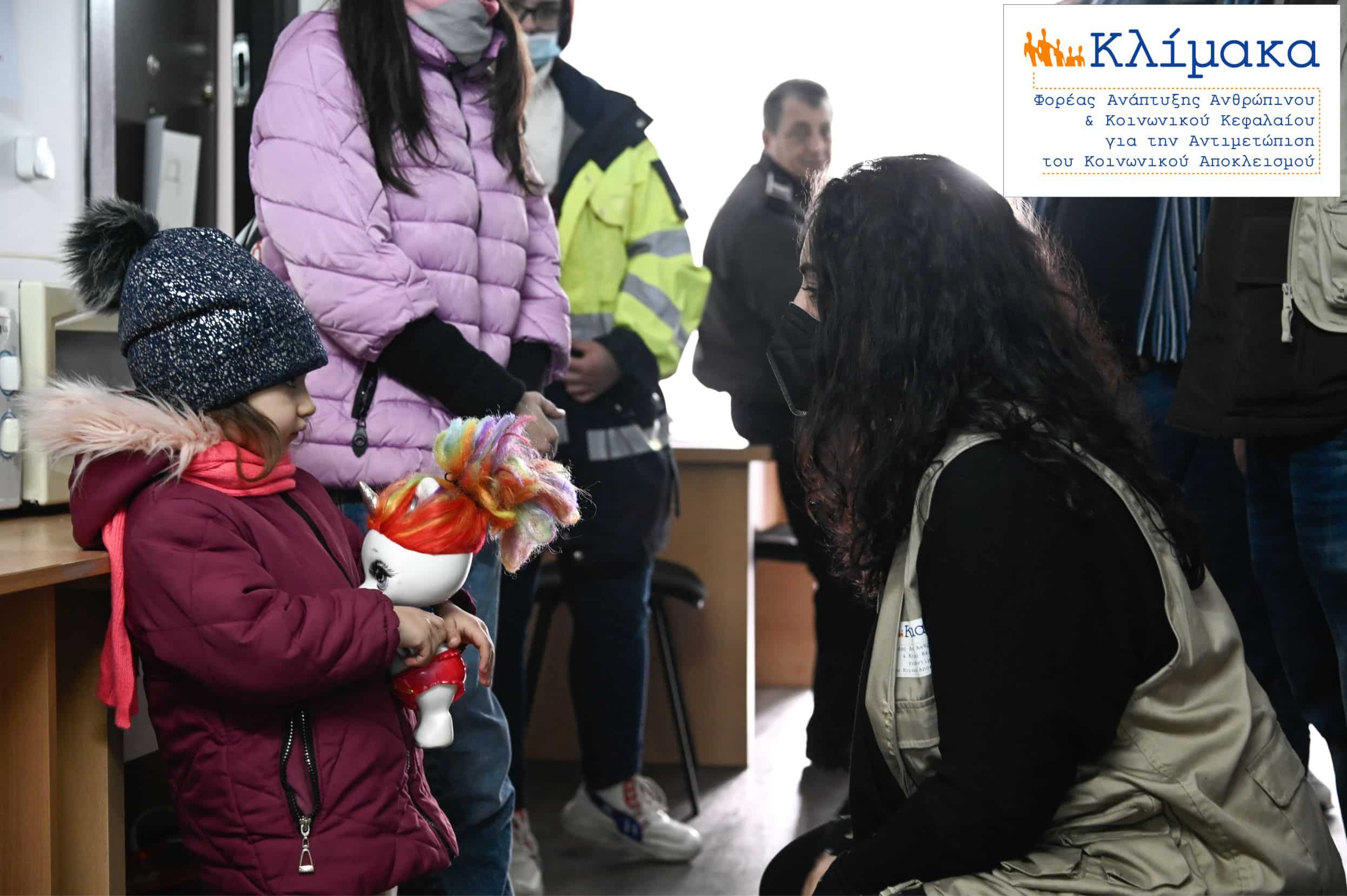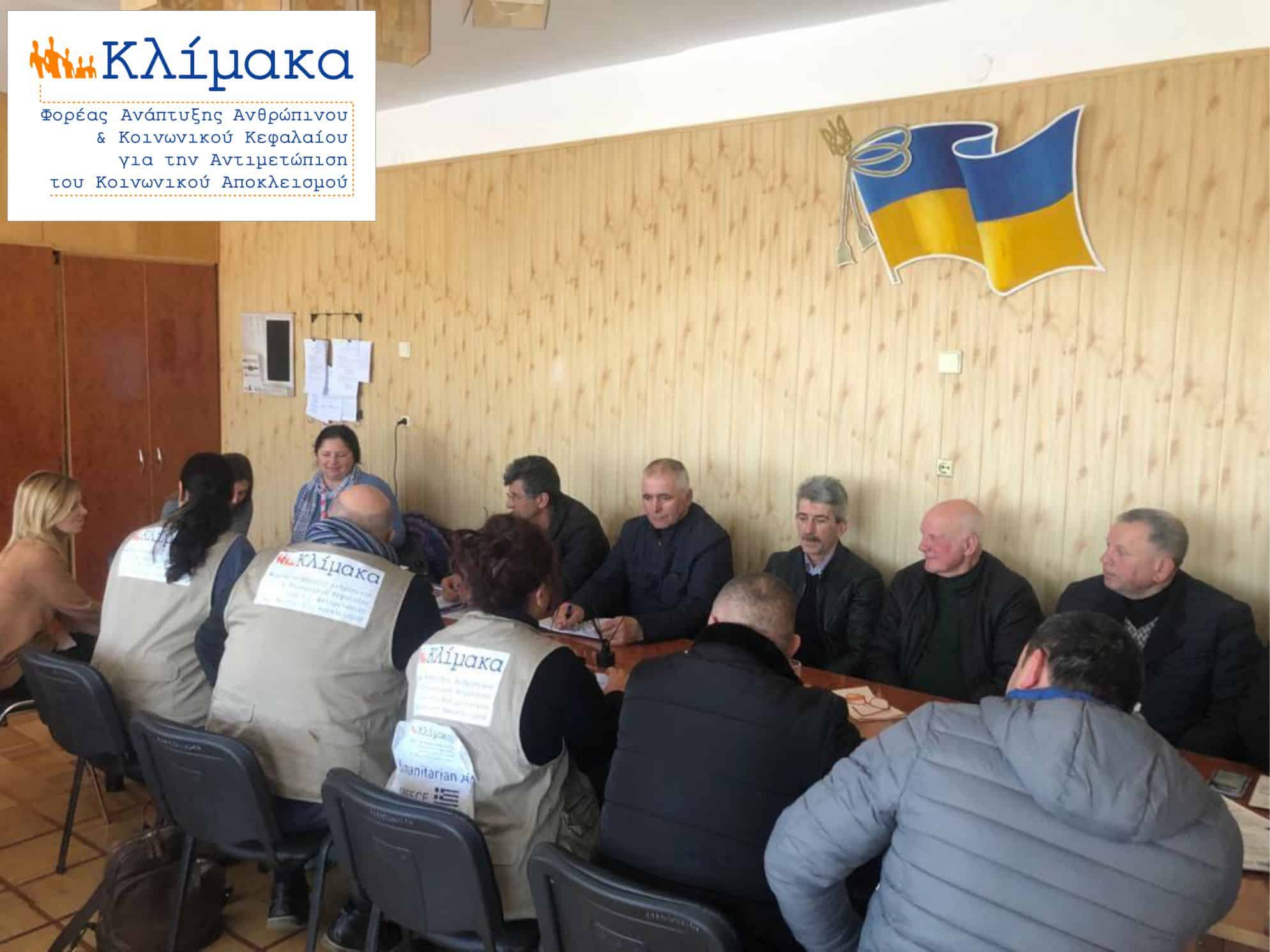Guest article by KLIMAKA, Greece
Klimaka is a Greek not-for-profit organization that has been working on the front lines, providing mental health services and combating social exclusion for over 25 years. Not even a week after the war in Ukraine started, they set up a Telepsychiatry service, able to provide psychiatric and psychosocial support on a 24-hour basis, ran by experienced psychiatrists and mental health professionals in the following languages: Ukrainian, Russian, Belarusian, Romanian, Polish, English, French, Italian, Arabic, Farsi. In addition, Klimaka organized a humanitarian mission to Romania and Ukraine (March 23-30, 2022) in order to introduce the service where it was mostly needed, while also delivering medical supplies to the affected population.
The Telepsychiatry Service was delivered and established in:
- Galatsi (Romania) at the Romanian – Moldovan – Ukrainian borders, and at the Accommodation Center for Refugees;
- Siret (Romania) at the Romanian – Ukrainian borders, and the Accommodation Center for Refugees;
- Chernivtsi (Ukraine) at the Social and Health Services Regional Department, and the Center for Social and Psychological Assistance.
In Romania, they had an excellent and productive cooperation with local and regional authorities. It was encouraging to see a very well functioning coordination and service provision system between the state, regional actors and civil society organizations. In Ukraine, needs remain unmet despite the availability of services and supplies at the borders. There is a lack of human and financial resources for such things as food, medicine and personnel.
The first phase of Klimaka’s humanitarian mission resulted in 4.500 travelled kilometers in 7 days, and with the establishment of the Telepsychiatry service which is now included in the information package every refugee receives in Romania and Ukraine. Further steps with a focus on the accommodation center in Chernivtsi are discussed in order to design support with physical presence of a group of Klimaka’s colleagues. This is done to cover the lack of specialized personnel.
The affected population, including Roma, are entering a possible state of refuge, marginalization, difficulties and poverty, so these are the people the organisation works with. Having contact with them and being there with them at this stage gives them more tools to design further support services and models in a more effective way.
About Klimaka: The NGO is supervised and funded by the Greek Ministry of Health and it consists of 17 Mental Health Units (Residential Care Units, protected apartments, Mobile Units), a Mental Health Center for Refugees and Asylum Seekers, a Mental Health Center for the Homeless, a Mental Health Center for Roma, a National Suicide Prevention Hotline and the Greek Center for Suicide Prevention. These were created for the promotion of mental health, and combat social exclusion. In addition, projects on mental health in Iraq, Afghanistan and Sri Lanka have been implemented. Moreover, Klimaka is the representative of the Telepsychiatry Scientific Branch of the Greek Psychiatric Association.
Disclaimer: the opinions – including possible policy recommendations – expressed in the article are those of the author and do not necessarily represent the views or opinions of EPHA. The mere appearance of the articles on the EPHA website does not mean an endorsement by EPHA.

